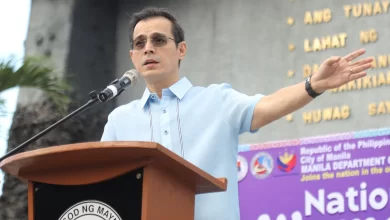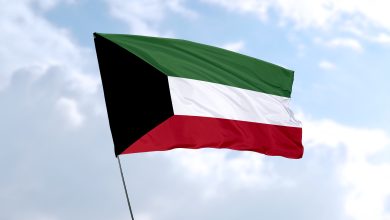The UAE has long been implementing initiatives that underscore its commitment to humanitarian values, the very foundation on which the nation is built.
From foreign aid to developmental programs, the country has been steadfast in its dedication to both local and global well-being. Exemplifying this is the ongoing amnesty program that offers stability and hope – for people looking for a brighter future and for the national government seeking enhanced compliance and better community relations.
With the announcement that forgiveness would be granted to visa violators early last month, the Philippine missions have begun mobilizing resources to provide support to affected Filipinos in the UAE, communicating information and extending encouragement for them to act promptly once the program begins.
But who is eligible and who is not?
The amnesty covers those whose residency or visit visas have already expired, including family members of sponsors, absconders, and foreigners born in the country without any official documentation.
However, those who have entered the UAE illegally, violated residency regulations and absconded after September 1, 2024 or have ongoing deportation cases in the UAE or any GCC country are not eligible. In addition, any pending criminal, civil, or financial cases, such as debts, loans, and property disputes, must be resolved first before applying.
The advantages of availing of the amnesty
Those who apply and are given permission will have their fines and exit fees waived. Overstay fines or any penalties for leaving the country to start anew will also be removed. This is particularly important for those who have already accumulated large amounts of fines due to overstaying. They will be relieved of financial worries and will be allowed to have a fresh start without the burden of previous penalties. Re-entering the UAE in the future will not be an issue as well, so long as there is an appropriate visa.
Eve, a 38-year-old Filipina in Dubai, is just one who is grateful to have the opportunity presented by the UAE’s amnesty program. After almost five years of struggling as an illegal resident due to being a victim of an illegal recruiter, she sees this initiative as a light at the end of a long tunnel.
“The UAE amnesty is very good news to all of my fellow expats here in the UAE with overstay fines because we don’t need to worry about where to get funds to fix our visa status. I have to grab this opportunity to rectify my status without having to pay my overstay fines here in the UAE, get a job and have the freedom to roam around without any [fear] of getting caught,” she shared with The Filipino Times.
“Now, we can go back home to visit our families without having to worry about coming back to the UAE properly. Thanks to the government of this country.”
The application procedures
For Eve and others like her who prefer to stay in the UAE to continue pursuing better lives for themselves and their families back home, availing of the amnesty can be done either in person or online.
Online application is available through e-channels and approved typing centers, where applicants may submit their service requests along with their valid passport and complete documentary requirements such as their MOHRE-approved employment contract.
If notified of the need to physically visit a designated fingerprinting center, it means the applicant’s biometric records are needed. This should be done in the emirate where the expired visa was issued, especially for applicants aged 15 and above.
In Dubai, 86 Amer Centers are available to assist with in-person applications. If the visa was issued in the Northern Emirates, applications can be made at Federal Authority For Identity, Citizenship, Customs & Port Security (ICP) centers, which will operate daily throughout the amnesty period from 8am to 8pm.
Those who plan to leave the UAE, may also do it online. They must submit a copy of their passport and ticket along with their application for an electronic departure permit through smart channels.
They will receive their permit immediately unless they need to visit the General Directorate of Residency and Foreigners Affairs-Dubai (GDRFA) AL Awir Service Center to complete their biometric records. Other emirates have GDRFA service centers that are also capable of capturing biometric fingerprints. If they have an Emirates ID, however, they may get their departure permits from any Amer Center, which collects minimal fees for their services.
Meanwhile, departure permits are valid for 14 days from the date they are issued. If, for instance, an applicant’s permit expires after the amnesty period and they haven’t left, any penalties and fines accrued earlier will be enforced.
Philippine missions’ support
Filipino applicants may also go to the Philippine Consulate or the Embassy to avail of the amnesty. If they have the complete documentation, they will be served as a walk-in applicant, no need to set an appointment.
On the inaugural day of the UAE Amnesty Program, the Philippine missions announced that they had begun receiving the first applicants.
Led by Philippine Ambassador to the UAE Alfonso A. Ver, the Philippine embassy welcomed those Filipinos seeking to benefit from the amnesty initiative, and again reminded “Filipinos in the UAE who have concerns regarding their immigration status to take full advantage of the program.”
Philippine Consul General Marford M. Angeles, together with the Consulate’s Assistance-to-Nationals (ATN) Team, also extended their support to the first batch of Filipino nationals seeking to legalize their status. The Consul General personally visited the Al Aweer Immigration facility, where he met with high-ranking GDRFA-Dubai officials.
“We earnestly encourage those who have yet to benefit from this year’s amnesty to take full advantage of the program as early as possible. We also urge our kababayans to seek employment only with legitimate companies and sponsors, remain vigilant against fraudulent schemes that involve the illegal sale of visas, and uphold the rule of law,” Angeles told The Filipino Times in an interview.
He said the amnesty scheme’s long-term implications for both the UAE and the Filipino community are significant and mutually beneficial. “For the UAE, the amnesty program strengthens its labor market by regularizing the status of undocumented workers, thereby enhancing workforce stability, and ensuring compliance with local laws. It also reflects the country’s dedication to compassionate and progressive immigration policies.
“For the Filipino community, the amnesty offers a critical opportunity to legalize their status, securing their rights and access to employment and social services. This not only improves their quality of life but also promotes a more positive and productive relationship between the Filipino diaspora and the host country. We also advise everyone to follow official instructions from the UAE government or the embassy/consulate,” he added.
Passport issues and travel document application
Those who have absconded from their employers and lost their passports are advised to check if their passports have been turned over to the Philippine missions; otherwise, they have to apply for a Police Report or Lost Passport Certificate through Dubai Police’s website or mobile app. The police station with jurisdiction over the area where their visa was issued can also provide them with a Lost Passport Certificate.
Requirements for replacing lost passports include personal appearance, photocopies of the lost passports, a birth certificate issued by the Philippine Statistics Authority, a valid ID, an affidavit of loss from the Philippine missions, and a police report with an English translation. The cost for passport replacement is AED 600, while the affidavit of loss costs AED 100.
For expired passports that need renewal, consult the Consulate’s website for specific requirements. It will take six to eight weeks for a new passport to be released. In case a renewed passport cannot be secured within the amnesty period, a Travel Document application is the alternative for urgent travel.
To secure a Travel Document, applicants must complete an application form and provide a copy of the lost passport, the latest visa, a direct flight ticket to the Philippines, four recent passport-sized photos, an affidavit of loss from the Consulate, and a Police Report with English translation. Minors will need additional documents, including a birth certificate or report of birth, parental identification (such as a report of marriage or PSA marriage certificate), and copies of their parents’ visas and passports.
As the UAE’s amnesty program unfolds, it represents more than just a chance for legal reprieve; it embodies the compassion that forms the cornerstone of the UAE’s values, offering a chance for renewal and integration in a society renowned for its humanitarian spirit.





